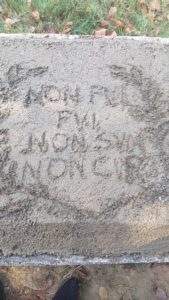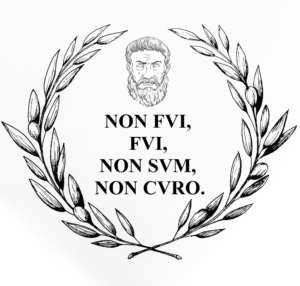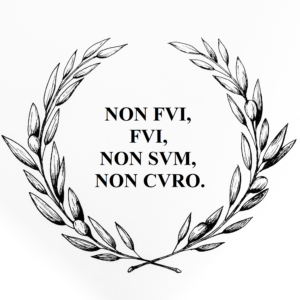The noble man is chiefly concerned with wisdom and friendship; of these, the former is a mortal good, the latter an immortal one. – Vatican Saying 78

“Of all the things that wisdom provides for a happy life, by far the greatest is friendship.” – from Jesús’ instagram feed
By now some of you will be aware that our friend Jesús (SoFE member and one of the admins of the Spanish SoFE group) passed away around the 20th in a bicycle accident. Jesús was a professor of political science in Venezuela. His way of dealing with all the things that have been happening in his country was through the frequent use of comedy and cynical commentary. He was instrumental in the last two years in translating many writings for the Spanish page of the Society of Friends of Epicurus. He often carried a copy of Epicurus’ Doctrines with him for study and remembrance, and some of his friends and/or students reported that he had been sharing the Epicurean Gospel with them. He was a very smart and sincere Epicurean, and thanks to his steady participation in our monthly zoom meetings, our Eikas had become a bilingual event. We’re going to miss him.
This is not the first time we lose an Epicurean in our circle. It leads us to philosophize about these questions: How do we properly mourn our Epicurean Friends? How can we remain considerate and respectful of family members who do not share our values, while also properly honoring the memory and the sincerely-held beliefs of our Friend? What funerary and/or memorial traditions will we implement? Principal Doctrine 40 reminds us that we should “not grieve the early death of the departed, as though it called for pity.” The practice recommended for remembering our fallen is known as “pleasant remembrance”. Initially, this may be difficult to achieve, but over time we should fill the hole in the world left by the departed with pleasant memories.
The celebration of Eikas on the Twentieth of every month was originally a memorial service honoring the Epicureans who have passed, and furnishes a great opportunity to pour our libations and remember him. Therefore, we did a private memorial toast to the memory of Jesús during our Eikas zoom meeting this weekend.
The Reemergence of the Roman Epicurean Burial Tradition
Maybe this may teach us something about the utility, in times like these, of having healthy ecumenical relations with Christians. When we learned of Jesús death, we also learned (from his brother) that his mother would probably not allow a non-Christian funeral. After all, she named him after Jesus Christ and is very Catholic (and devastated). One of the first things we are learning from this is that funerals are for the living. They help bring closure and comfort to the survivors. As Philodemus the Guide reminded us in his scroll On Death, the person who has died is not there, and does not benefit in any way whatsoever from funeral rites.
Therefore, we must consider that, for the Christian survivors, it is normal that they will want to remember him according to the rites and traditions of Christianity, and that for the Epicurean survivors, it is normal that we will want to remember him according to our own traditions. For this reason, after speaking to his brother, it was important for us to respect the Christian family’s ways of mourning, and we figured we would simply mourn and remember Jesús in our own way privately, but our friend Alan did share imagery inspired by the inscriptions that were used by Roman Epicureans on their tombs with some of the friends and students of Jesús, and some of them expressed that it would be a nice gesture to honor his sincerely-held Epicurean beliefs in some way. After all, his beliefs were a big part of what made him who he was, and part of why people loved him.
 He was loved by many in his community. One of his friends said: “He will be immortal to us“.
He was loved by many in his community. One of his friends said: “He will be immortal to us“.
So we were very pleasantly surprised when, after the funeral, we received an image of Jesús Guevara’s tomb. Someone who saw our post (perhaps one of his students?) had traced the image that our friend Alan had made to memorialize him over the fresh cement on his tomb. As you can see, it’s very crude, but it’s an authentic expression of the resurgence of Epicurean culture in the 21st Century in a part of the world that is deeply Catholic … and (we must acknowledge) it’s also a token of comfort, solidarity, and compassion on the part of people who are (in all likelihood) Christians, but who respect us enough and have enough compassion, kindness, and tolerance, that they prefer to honor the sincerely-held beliefs of our fallen rather than erase them, or sugar-coat them. For this, we are deeply thankful.
We only get one life, it’s very short, and sometimes we don’t get a chance to articulate our love for each other. If Jesús was still here, I’d just want to say thank you, I love you, and we will not forget you. I invite my readers to take the time to call your friends that you haven’t seen in a while–for (as the Havamal says) “a path that is neglected, slowly fills with weeds”. Peace and Safety.


